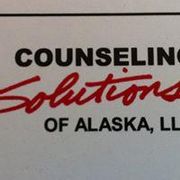
Secondary post-traumatic stress disorder (PTSD) occurs when an individual hears about the firsthand traumatic experiences of another individual. Also known as vicarious trauma, secondhand trauma, or PTSD by proxy, this condition can carry many of the same symptoms as PTSD. If you suspect that you or a loved one could be experiencing this condition, here’s what you should know.
Possible Causes
Secondary post-traumatic stress disorder is common in child welfare workers, case managers, therapists, and other professionals who help care for individuals who have experienced trauma. Unlike burnout, which is the result of a job’s stress, this condition presents with actual symptoms of trauma. It occurs after indirect exposure to threatening circumstances, such as hearing the stories of patients, having to deliver bad news, and witnessing intense emotions in other people.
Symptoms to Watch For

The symptoms of this condition closely mimic those of post-traumatic stress disorder. They may include mood changes, avoidance, hypervigilance, guilt, anger, difficulty sleeping, exhaustion, immune system impairment, and difficulty concentrating. Sleep challenges are the most common symptom, with many people having nightmares or fixating on patients or their stories when trying to go to sleep.
Treatment Options
For some people, taking time away from work may be enough to reduce symptoms. Others may find a healthy outlet, such as taking walks, journaling, or spending time outdoors. Debriefing by sharing experiences with others could also help with offloading the mental and emotional weight of others’ trauma.
Many people also find comfort in relaxation techniques such as deep breathing and yoga. With that in mind, if the symptoms of secondary post-traumatic stress disorder affect a person’s ability to carry out their normal activities, it’s time to seek professional mental health support.
For help through secondary post-traumatic stress disorder or any other mental health challenges, turn to Counseling Solutions of Alaska. Located in Anchorage, these professional counselors and social workers are dedicated to helping you develop the tools to overcome difficult times. See their full list of services online or call (907) 644-8044 to schedule an appointment.
About the Business
Have a question? Ask the experts!
Send your question

